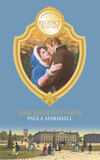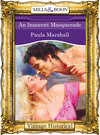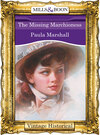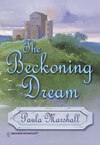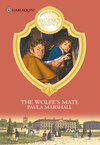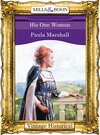Kitabı oku: «Miss Jesmond's Heir», sayfa 2
Chapter Two
‘You’re quiet tonight, Georgina. Is anything wrong?’
Caro, after a great deal of complaining, had played cards with Gus, Annie and Georgie before an early supper. After it she had retired to her favourite position on the sofa in order to read, but The Forest Lovers did not interest her, even though it was by her favourite author, who had written Sophia.
Georgina was repairing Annie’s doll’s dress, which had been torn by Caro’s pug Cassius in an unusual fit of temper. He was usually as sleepy as his mistress.
She said nothing in reply until Caro came out with, ‘Really, Georgina, you might be civil enough to answer a reasonable question.’
‘Forgive me, I’m somewhat distraite tonight,’ Georgie said with a sigh after removing some pins from her mouth. She had been wondering a little wildly how best to answer her sister-in-law since she really ought to have informed her earlier of her meeting with Jesmond Fitzroy. In the normal course of events, she would have done so immediately on returning home.
Gus and Annie, who had heard nothing of her final encounter with him, had babbled to their mother about meeting a strange man in the paddock, but Caro had been too full of her own affairs at the time to take much notice of them.
Something of Georgie’s disquiet must have affected Caro; she said anxiously, ‘I do hope you’re not sickening for a chill. It would be most inconvenient, for I should not like to catch it. Dr Meadows has often said that in my delicate state I ought to avoid having anything to do with anyone affected by any form of ill health.’
‘No, I’m not sickening for anything—at least, I don’t think I am. It’s just that this afternoon we met Miss Jesmond’s heir when we were playing cricket in her paddock, and I must confess that I think that you were right to advise us not to take advantage of him by trespassing on his grounds.’
Caro sat up sharply, her face a picture. ‘And you said nothing of this until now! Really, Georgina, it’s most inconsiderate of you. So little happens in Netherton, and when it does you invariably keep it to yourself.’
‘Don’t do it too brown, Caro,’ retorted Georgie, a little stung. ‘It’s not three hours since I met him, and until now we’ve not had an opportunity for a private conversation.’
Since she had no answer to make to that Caro said, somewhat stiffly, ‘I take it that he was the gentleman who came to the paddock this afternoon about whom Gus and Annie were prattling.’
‘Indeed. His name is Jesmond Fitzroy. He is Miss Jesmond’s great-nephew.’ It was all Georgie could bring herself to say of him. It was not enough for Caro.
‘But what is he like? How old is he? He is a gentleman, I take it?’
Georgie thought of the perfectly turned-out Mr Jesmond Fitzroy in his exquisite town clothes.
‘Very much a gentleman.’
Georgie’s reply was short, but it gave her away a little. Perhaps it was its very brevity that was betraying.
Caro said sharply, ‘And that is all? Surely you could tell his age. Was he old or young?’
‘In his thirties.’ Georgie was still brief. ‘He is extremely handsome. Very fair. Tall.’
‘Did he say anything about a wife?’ There was an unwonted eagerness in Caro’s voice which surprised Georgie a little.
‘Our conversation was not a long one, and I did not quiz him about his personal particulars. He was on his own. He did say that we might continue to play cricket in the paddock but, bearing in mind your reservations about that, I am not sure that we ought to accept his invitation.’
‘Nonsense. Of course we must accept such a kindness. A handsome young man—possibly without a wife—will be a great addition to Netherton. I wonder what he is worth. We must be sure to invite him to supper when he is settled in. You must call on him formally.’
And then, a trifle anxiously, ‘Did he notice your breeches? I told you not to wear them.’
Georgie said dryly, ‘He could scarcely not notice them. And, if I do pay him a formal call, I shall be sure to wear skirts.’
‘If? Why if? Of course you will oblige me by calling on him. You have nothing better to do! I grow intolerably bored these days and you would please me greatly by arranging matters so that I may enjoy a little entertainment. I would prefer that we extended the hand of friendship to him before Mrs Bowlby does. She is always to the fore these days. One would not think that I was Mrs John Pomfret of Pomfret Hall!’
Georgie nobly refrained from pointing out that if Caro were to exert herself a little and not perpetually live on her sofa it would be more difficult for Mrs Bowlby to claim to be the grande dame of Netherton, and that it was she, Georgie, who did most of the work which provided Caro with some sort of social life. That she did so willingly was for the sake of Gus and Annie, who would otherwise have been neglected, and in memory of a brother who had been unfailingly kind to her.
‘Very well,’ she said, squirming inwardly at the thought of calling on Mr Jesmond Fitzroy, with or without skirts. ‘On the other hand, if you wish to rival Mrs Bowlby, why do you not make the effort and call on him yourself? After all, he does live virtually next door.’
Caro gave a long-suffering sigh. ‘You know quite well why I go out so little, Georgie. The effort is too much for me. Dr Meadows says it is essential that I take things easily and that does not include running round Netherton extending supper invitations to all and sundry. And you know that you like being busy.’
But not with Mr Jesmond Fitzroy, was Georgie’s dismal response. Oh, dear, who would have thought that Caro would take such an interest in a new neighbour? And then something else struck her: what a slowcoach I must be! John has been dead these three years, she is scarce thirty, and there are few men in this part of Nottinghamshire whom Caro would think fit to marry Mrs John Pomfret.
Hence retiring to the sofa.
But the arrival of a handsome man, who is only a little older than she is, and who must be presumed to have some sort of fortune, is obviously considered by her to be quite a different proposition from the local squires and the odd unmarried poor parson who frequent these parts!
For some odd reason, this new thought distressed Georgie a little. Odd, because her memories of Mr Jesmond Fitzroy were bitter ones. After all, she told herself firmly, he and Caro would make a good pair, united in disapproving soundly of me if in nothing else!
Caro was still talking—it was time Georgie paid some attention to her. ‘So that’s settled,’ she was saying. ‘You will pay him a courtesy visit tomorrow morning before the rest of Netherton stands in line at his doorstep to try to monopolise him. Poor John was the Squire here before he died, even if Banker Bowlby does seem to think he has inherited a position which Gus will fill when he comes of age.’
She sank back against the cushions. ‘You may also invite Mr Fitzroy—and his wife, if he has one—to supper tomorrow evening. It is possible that he has had a long and hard journey and might not wish to visit anyone tonight.’
The last thing Georgie wished to do was to have another lengthy tête-à-tête with her recent tormentor. While not directly contradicting Caro—which would only have resulted in starting a lengthy and complaining argument—she privately decided to send one of the footmen around in the morning with a note asking him to supper on Friday evening, two days hence, which would give him time to find his bearings.
On second thoughts, she decided that, by the look of him, Mr Jesmond Fitzroy would never need time to find his bearings. By his looks and manner he appeared eminently capable of landing on his feet at whatever spot he chose to arrive—whether it be Netherton or elsewhere.
Netherton, being somewhat more than a village, had decided to call itself a town, albeit a small one. It had numerous good shops, two posting inns, a bank, and, although it could not claim to be a genuine spa, possessed a set of impressive Assembly Rooms where one might drink pure, and supposedly health-giving, water brought from a nearby spring which had been dedicated to Saint Anne. Balls were held there and, on two afternoons a week, tea and cakes were served in the Grand Hall to the sound of a string quartet.
The sum of which caused its inhabitants to remark with great satisfaction, ‘We may not call ourselves a spa, but we have all the advantages of one without the disadvantages of large numbers of idle—and sometimes disreputable—visitors.’
Besides Pomfret Hall and Jesmond House, there were also a large number of respectable country houses around the town whose gentry owners were responsible for a lively social life. One of Netherton’s wits had recently remarked that ‘in imitation of the north of Nottinghamshire, nicknamed the Dukeries by virtue of the large number of Dukes’ mansions there, this southern part of the county ought to be nicknamed the Gentries!’
Because of the lack of visitors from the outside world, the news that Miss Jesmond’s heir had finally arrived at Jesmond House was the cause of a good deal of excitement among the ladies of the town. The gentlemen, whilst sharing their interest, were much less noisy than their wives and sisters in expressing it.
Mrs Bowlby, Banker Bowlby’s wife, was holding court in her drawing room surrounded by cronies and toadies on the afternoon after Georgie’s encounter with Jess, and she could scarcely contain her enthusiasm on learning of his arrival.
‘You are sure, Letitia,’ she announced, addressing the poor gentlewoman who was her cousin, dependent and victim, ‘that he really has taken up quarters here? I would not like to make a fool of myself by visiting an empty house in order to be patronised by that awful butler. One might imagine that, if the heir truly has taken up residence here, one of his first acts will be to dismiss him and engage someone more suitable.’
‘Oh, I am quite sure that he is the gentleman now in residence,’ Miss Letitia Markham reassured her demanding mistress. ‘The cook there told our cook that he arrived here two days ago, but has not advertised his presence to the generality. He wished to inspect the house and grounds in private, he said. Far from sacking the butler, he immediately rehired the few servants left to look after the house—so I’m afraid you will have to put up with him, Maria.’
One of poor Miss Letitia’s few comforts in life was to administer small pinpricks to annoy her irascible employer, whose only concession to her poverty-stricken cousin was to allow her to use her Christian name. Fortunately for Letitia, Mrs Bowlby was never quite sure whether the pinpricks were accidental or intended.
‘The more fool he, then!’ she exclaimed. ‘He had a fine opportunity for a clean sweep. Have you any notion who he is? Of what family or fortune? Or how old he might be? Has he a wife, for example?’
Miss Letitia smiled and nodded. ‘Oh, yes. He is Mr Jesmond Fitzroy, Miss Jesmond’s great-nephew who used to stay with her, I am reliably informed, many years ago when he was only a lad. He is not married. Of his own family or fortune, I have no information—or rather, our cook had none.’
‘Hmm, Fitzroy,’ murmured old Miss Walton of Walton Court. ‘An odd name. I seem to remember a boy of that name visiting Miss Jesmond some twenty-odd summers back.’
‘It means King’s son,’ declared Mrs Bowlby, nodding authoritatively. ‘Probably goes back to the Middle Ages.’
‘Oh, how romantic,’ gushed Mrs Firth, whose own family only went back to Elizabethan times, although Letitia often privately thought that that meant nothing since all families went back to Adam and Eve. This was an opinion so seditious that she never voiced it aloud.
Instead, she added slyly, ‘I understand that Mrs Pomfret sent Mr Fitzroy an invitation to supper which—according to what his cook said to ours—he gratefully accepted.’
‘Did he, indeed! One would never have suspected that she might be so forward—she being such an invalid these days. What does puzzle me,’ added Mrs. Bowlby, ‘is how it is that the servants always know these things before we do. You must have spent a great deal of time gossiping in the kitchen with cook today, Letitia, to have learnt all that.’
This last came out as a piece of overt criticism.
Miss Letitia was in no way daunted. ‘Yes, wasn’t it fortunate that I did? Otherwise we should all still be in the dark about our new neighbour!’
‘Has Mrs Pomfret invited anyone other than Mr Fitzroy to supper?’ asked Miss Walton, looking around her. ‘I have heard nothing—has anyone else?’
No one confessed to having been invited. Mrs Bowlby, giving a ladylike sniff, said, ‘You may be sure that she will monopolise him if she can. I will not be at all surprised if he is her only guest.’
Mrs Bowlby plainly felt that her desire to be the first lady of Netherton—spurred on by Caro Pomfret’s retirement from public life—was under threat if Caro decided to leave her sofa and return to it.
She was just about to say something even more cutting than usual about the Pomfrets when the butler opened the door and announced ‘Mrs Charles Herron,’ and Georgie walked in, looking charming in a leaf-green walking dress which showed off her russet hair and green eyes to advantage.
So much so that, looking at her ladylike self in her mirror, she had felt so composed and comme il faut that she had a sudden wish to call on Mr Jesmond Fitzroy and dazzle him in her character of Professor Charles Herron’s wife, to demonstrate how mistaken he had been to dismiss her as a hoyden in breeches.
She had, on the other hand, not the slightest desire to visit Mrs Bowlby, whom she disliked intensely, but, having defied Caro’s wishes over meeting Mr Fitzroy again and inviting him to supper, felt that she was compelled to oblige her over Mrs Bowlby.
‘Try to find out,’ Caro had said eagerly, before she set out, ‘whether there is any useful gossip about our new neighbour to be gleaned. Mrs Bowlby’s cook is Miss Jesmond’s cook’s sister, you know.’
Georgie didn’t know, and was sadly amused by the vacuous tittle-tattle which formed the staple of provincial life. Her marriage to a gentleman-scholar who had been a pillar of academia at Oxford University had introduced her to a far different society. It had necessitated making herself over into a demure and outwardly conventional wife, but she had considered that a fair exchange for her entry into the world of ideas in which he had reigned supreme.
Her return to Netherton had shown her its emptiness—but she could not say that to Caro, nor that her reversion to her previous lively ways was a silent rebellion against Netherton’s dullness. Nevertheless, to please Caro, she smiled at Mrs Bowlby, pretending that the greatest desire of her life was to sit in her drawing room, to drink weak tea and to engage in prattle about all those neighbours who were not present.
Mrs Bowlby was not slow to attack. ‘I understand that Mrs Pomfret has already asked our new neighbour to supper. May I ask if you have met him, Mrs Herron?’
After a night’s rest and a private determination that she was making a cake of herself over Mr Jesmond Fitzroy, for whose opinion she did not give a damn—to use a phrase which her brother John had been fond of—Georgie found it easy to answer the Gorgon, the name with which she had privately dubbed Mrs Bowlby.
‘Oh, indeed. By pure chance, I assure you. I was walking with the children in the paddock between the Hall and Jesmond House when we came upon him.’
She paused, surveying the expectant faces around her who were finding her narrative much more exciting than the tale of what one cook had said to another.
‘And what did you make of him?’ burst from Miss Walton, who had the reputation of being both downright and forthright and tried to live up to it.
‘I thought that he appeared most gentlemanly and agreeable. He was dressed in the London fashion,’ said Georgie with a smile, as though she and Jess had been exchanging civilised pleasantries on the previous afternoon instead of engaging in a slanging match.
‘We hear that he is young—in his thirties,’ stated Mrs Bowlby. ‘Did he mention anything about having a wife or a family?’
‘Oh, our conversation was brief and we never touched upon personal matters. Neither of us thought it the time or the place. We shall shortly know everything about him, shall we not? Until then we must possess ourselves in patience.’
The smile she offered the assembled company this time was that of Mrs Charles Herron of Church Norwood at her most cool and commanding and brooked of no contradiction. It killed further conversation about Jess Fitzroy dead, and the ladies were reduced to gossiping about the next Assembly Ball, due to take place in a fortnight. Since Mrs Bowlby’s husband was the chairman of the committee which ran the Rooms, her opinion on whether the Ball was to be a formal, or an informal one, was deferred to.
‘Oh, informal, please,’ Georgie begged. ‘Formal ones are so stiff, I think, and the younger girls would like something a little freer. Do try to persuade Mr Bowlby to incline in that direction, please.’
‘I rather think not,’ Mrs Bowlby enunciated firmly. ‘There is too much freedom among the young these days. It is never too early to learn to conform!’
‘But only think how we longed for a little freedom when we were young,’ Georgie pleaded—but in vain.
After she had left them Mrs Bowlby remarked, ‘Mrs Herron is a deal too sure of herself for so young a woman. I note that she is not affecting the tomboy today.’
Mrs Firth leaned forward to say confidentially, ‘Jepson, my maid, told me yesterday that she runs round the grounds at Pomfret Hall wearing—of all things—breeches!’
Hands were raised in shock. Miss Walton pronounced the last word on the subject. ‘One has to hope that Mr Fitzroy has not seen her in such a get-up. What kind of impression would that give him of the way we conduct ourselves in Netherton!’
A judgement which was received with universal acclamation.
Jess Fitzroy was introducing himself to Netherton on the morning of the day on which he was invited to supper at Pomfret Hall—a visit which intrigued him since it would mean meeting the young termagant on her own ground.
He drove into Netherton in his gig. He had decided not to bring his flash curricle into the country immediately, since it might give away the extent of his wealth. To be regarded as comfortable, he had decided, was his aim: an impression he certainly gave when he reached the inn yard of the White Lion and handed the reins over to a willing ostler.
‘Which is the way to the bank?’ he asked, adjusting his hat to the right angle, neither too jaunty nor too serious. He was not dressed in his London fine, but something discreet, more suited to a small country town. His boots were not dull, but neither had they been glossed with champagne.
‘To your left, sir, when you leave the yard. On the main street. You can’t miss it.’
His reward was an unostentatious tip.
Jess found the main street to be busy. He was the subject of a few curious stares, as he had been when he drove in.
The ostler had been right. The bank was unmissable. He pushed open a big oak door with a brass plate in the centre proclaiming itself to be Bowlby’s. Inside it was like every country bank he had ever visited—quite different from Coutts, where he had his account in town.
A small man dressed in decent black advanced towards the stranger. ‘Pray, what may I do for you, sir?’
Jess said briefly. ‘I am Jesmond Fitzroy of Jesmond House, Miss Jesmond’s heir. I wrote to Mr Bowlby from London, explaining that I wished to do business with him and possibly open an account here. I would like to speak to him, if you please.’ He looked towards the door which plainly opened into the bank’s parlour.
‘One moment, Mr Fitzroy. I will discover whether he is free to see you.’
Jess sat down in the chair indicated and gazed at the bad oil paintings of bygone Bowlbys on the walls. He reflected amusedly that it had been easier for him to see Mr Coutts in his London office than Mr Bowlby in his country one—but then Mr Coutts knew exactly who he was and all that Mr Bowlby knew was that he was Miss Jesmond’s nephew.
The door opened and Mr Bowlby emerged, followed by his clerk. He extended a welcoming hand.
‘Always honoured to meet the late Miss Jesmond’s nephew,’ he boomed, his fat face one smile. ‘Pray step this way, sir,’ and he flourished a hand towards the parlour where he offered Jess a seat in an armchair facing his large and imposing desk.
‘Now, sir, what may I do for you?’
Jess looked round the comfortable room before saying, ‘First of all, I should like to take charge of the deeds of Jesmond House, which I believed are lodged with you. Was there any particular reason why they were not given to the keeping of her solicitor, Mr Crane?’
‘None, sir, none. But I had been a friend of Miss Jesmond’s for many years and when she indicated that she wished me to retain them for safekeeping after she had paid off her mortgage, I did not argue with her. I shall have them delivered to you at Jesmond House tomorrow. What else may I do for you, sir?’
‘I would like to open a small working account with you, so that I have a source of income here in Netherton. Nothing large, you understand. My main account will remain at Coutts.’
Mr Bowlby rubbed his fat hands together and said in the manner of a wise man instructing a foolish one, ‘Will not that present some difficulties for you, sir, if you intend to remain in Netherton? Would it not be wiser to have your main account here, rather than at a distance? Our reputation is an excellent one.’
For some reason Jess found that he did not like Mr Bowlby. He could not have said exactly why, but years of working with Ben Wolfe had first honed his intuition and then had led him to trust it. Nothing of this showed. He poured his charm—noted among the circles in which he moved in London—over the man before him.
‘Since I have not yet made up my mind whether I intend to make Netherton my permanent home, I think it wise to retain my present financial arrangements. You are happy to have a small account on your books, I trust.’
He did not add that transferring his full account to Bowlby’s Bank would have enlightened the man before him of the true extent of his wealth—something which he preferred to remain a secret. His trust Mr Bowlby would have to earn, since Jess Fitzroy had long since learned that nothing was ever to be taken for granted in the world of business and finance. Only time would tell how far he could trust Mr Bowlby.
‘Certainly, certainly, no account too small, sir. I was but trying to assist you. Finance is a tricky business and gentlemen frequently find themselves adrift in it.’
Not surprising if their metaphors are as mixed as yours, was Jess’s inward comment while Mr Bowlby roared on, ‘And is there nothing further we can do for you?’
‘Yes, indeed,’ said Jess sweetly. ‘You may inform me of the way to Mr Crane’s office where I also have business.’
‘With pleasure, sir,’ and he walked Jess to the bank’s front door before pointing out Mr Crane’s front door as cheerfully as the ostler had done.
But Jess did not leave him a tip.
Instead, he bowed his thanks and walked the few yards down the street to Mr Crane’s office, where something of a surprise waited for him.
The surprise was not Mr Crane, who was an elderly gentleman whose manner was as quiet and pleasant as Mr Bowlby’s had been noisy and officious. His office was quiet, too. No oil paintings, Jess noticed, just a small water-colour showing a country view with sheep in the foreground and a river in the distance.
Instead, the surprise consisted of Mr Crane’s information as to the extent of his inheritance.
‘I fear that I misled you, sir. When I came to investigate Miss Jesmond’s financial position more fully I found that, in fact, her estate was less than half of what I had originally indicated to you in my earlier letters. It seemed that she invested unwisely, sold off good stock and bought bad. I spoke to Mr Bowlby about the matter and he confirmed that she had refused his advice and depended on that of a friend who claimed that he had been an expert in the City. At one point, she did so badly that she was compelled to borrow from the bank, lodging her house deeds as security—although I understand that she later paid off the loan. In order to do so, she sold him a large part of what had been Jesmond land for many years.’
‘But Mr Bowlby retained the deeds,’ Jess said slowly, ‘even after she had repaid the loan. He has promised to forward them to me tomorrow.’
‘Oh, you must understand that she trusted Mr Bowlby, who had been so kind to her, and allowed them to remain with him. Of course, until she was compelled to take out the mortgage, they were in my charge. I saw no need to bring pressure on her to lodge them with me again. They were safe where they were.’
‘Oh, that explains it,’ said Jess—who thought that it didn’t.
‘I repeat that I am sorry that I unintentionally deceived you over your inheritance. I did not realise that matters had gone so ill with her. I hope that you have not yet made any unbreakable decisions based on its apparent original size.’
‘Not at all,’ said Jess, who had regarded his aunt’s money as a bonus. He had been more interested in the house in which the bank no longer had any interest. He was surprised that Mr Bowlby had said nothing of these matters when he had indicated his misgivings over the bank’s holding the house deeds. Or was he surprised? He wondered what advantage Mr Bowlby thought that he was gaining by holding on to them. Nor had Bowlby informed him that it was he who had bought his aunt’s lands so that she might pay off the mortgage: that transaction had never been mentioned.
He also thought that Mr Bowlby had supposed him to be a gentleman who knew little of matters financial and therefore might be fobbed off with an incomplete story—which raised, in Jess’s mind, further suspicions as to his motives.
Mr Crane was still speaking. ‘There are some documents for you to sign, Mr Fitzroy, which will, in effect, transfer all her inheritance to you. It will then be your decision whether I continue to act for you as I did for her.’
‘For the moment,’ returned Jess coolly. ‘Until I have made up my mind what I intend to do, you may continue as my solicitor here—for my business in Netherton only. It is only fair to inform you that I have a solicitor in London who will continue to act for me there. Your interests will not conflict with his. My London affairs have nothing to do with Miss Jesmond’s estate.’
Mr Crane nodded. ‘I understand. If they do, then I must ask to be relieved of my responsibilities to you.”
Jess rose, bowed and sat down again.
‘Now,’ he said, ‘let us get down to business. You will be good enough to tell me all the details of the late Miss Jesmond’s estate which are in your possession and not those of Banker Bowlby.’
Mr Crane looked up sharply. Mr Jesmond Fitzroy had spoken coolly to him throughout in a most offhand manner, but he was not sure that his first impression of him as a charmingly lightweight young man was necessarily the true one.
And what had he meant by his last remark about Banker Bowlby?
He did not enquire and Jess said nothing further to make Mr Crane ponder on the true nature of his visitor. He listened quietly to the old solicitor’s exposition of Miss Jesmond’s admittedly muddled affairs, offering no opinions of his own before leaving with mutual expressions of goodwill.
He strolled along the street, familiarising himself with its layout before returning to the inn to collect his gig. After he had driven out of the White Lion’s stable-yard, he found himself behind a chaise which followed the road which led to Jesmond House until it turned off into the drive to Pomfret Hall some half-mile before Jess reached his own gates. He noted idly that Mrs Pomfret had visitors and wondered whether he would meet them at supper.
His main preoccupation was with his morning’s work and in particular with Banker Bowlby and with what Mr Crane had—and had not—told him…
‘Garth! What brings you here? And why did you not inform us that you were coming to visit us? Georgie, pray ring for the housekeeper—she must prepare a room for my brother immediately.’
Sir Garth Manning made no attempt to answer his sister’s questions. He was too busy smiling at Georgie, who was, for once, dressed demurely in Quaker’s grey with a high white linen collar trimmed with lace, as were the cuffs of her long sleeves.
‘Oh, don’t fuss, Caro. I never stand on ceremony, you know that. I always do things on impulse. Much the best way—one never knows what or who one may encounter next. And, to prove my point today, I have found your sister-in-law. I had no notion that she was staying with you—which proves my claim about the unexpected being best. You look charming, dear sister—I may call you dear sister, may I not?’
Georgina, who had never cared overmuch for Sir Garth, would have liked to retort to him with ‘No, you may not,’ but her regrets over her recent encounter with Jesmond Fitzroy had made her a little wary about being needlessly rude to gentlemen.
She simply gave him an enigmatic smile which he took for agreement. ‘Sister it shall be then. I cannot be constantly calling you Mrs Herron, most clumsy.’
‘But accurate,’ Georgie could not help retorting.
‘True, true—but how boring the truth often is, you must agree?’
Georgie could scarcely contradict him. Nothing could be more boring than the truth which Jesmond Fitzroy had served up to her the other day. It seemed that thinking of him had almost brought him to life for Caro exclaimed to her brother, who had sat down beside her and was fanning her gently, ‘Oh, Garth, it is most apropos that you have come. We shall now have not one, but two, handsome and unattached men with whom to entertain Netherton!’
